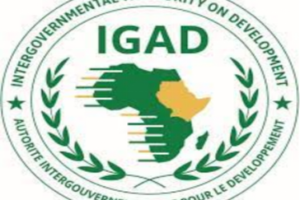
BY FITSUM GETACHEW
It is well known that the Green Legacy Initiative is a flagship program initiated by Prime Minister Abiy Ahmed in June 2019 with the objective of planting 20 billion tree seedlings in four years. But it has now come to be acknowledged that the endeavor has been not only commended as exemplary but also worth emulating because its contribution for combatting climate change is considered significant. In fact many international environment focused bodies and other who are engaged I the business have been flashing this activity as a significant development in the fight against climate change caused by deforestation, vast emission of gas and other climate unfriendly human activities carried out in a reckless manner.
In the second phase of the program launched recently in Afar Regional State by Prime Minister Abiy Ahmed, it was announced that 25 billion more seedlings will be planted in this phase. At the launch of the program there were several mission heads in Addis who admired the program and pledged they would help Ethiopia in this venture calling it exemplary.
Among them for instance France Ambassador to Ethiopia Remy Maréchaux said this Green Legacy Initiative is very important in mitigating climate change. He said it is part of a more comprehensive movement and there is a growing awareness that all around Africa this kind of initiative, maybe not to the level of Ethiopia, but from east to west in the Sahel there is a huge project of the green wall to stop the progress of the deserts.
Moreover, he elaborated that Ethiopia’s Green Legacy Initiative is an example for many countries. The ambassador said Ethiopia is an example for many countries and not only in Africa because it is a major response to a global challenge. What Ethiopia has undertaken is not only for it but also beyond because global warming is a global challenge that must be combatted by each and every country.
Similarly, the understanding of China’s Ambassador to Ethiopia, Zhao Zhiyuan on the Green Legacy Initiative is more or less on the same wavelength with the French Ambassador. He has appreciated Ethiopia’s resolve to plant 25 billion seedlings in the last four years. He said this has its own positive contribution in preventing climate change not only in Ethiopia, but also the world.
Likewise, Italian Ambassador to Ethiopia Agostino Palese said the Green Legacy Initiative will create the ability to prevent floods, droughts and other related disasters that occur due to climate change at the international level. He also said that the initiative will benefit other development activities besides its contribution to climate change prevention.
In a more or less similar tone ECA Director for Technology, Climate Change and Natural Resources Management, Jean Paul Adam said Ethiopia’s Long Term Low Emission Development Strategy (LT-LEDS) is exemplary for other African countries and would help to reduce carbon emissions. This remark came following Ethiopia’s launch of the Long Term Low Emission Development Strategy (LT-LEDS) with the view to overcoming climate change related challenges.
It is to be recalled that the objective of Ethiopia’s LT-LED strategy is to help Ethiopia pursue a green growth pathway by keeping its carbon emissions target to net zero by 2050 entailing an increased climate resilience and delivery of multiple economic and social benefits. Talking about the strategy to achieve Ethiopia’s sustainable development and climate mitigation and adaptation objective, following a holistic long term planning approach the ECA official said it is the best example to other African countries to tackle climate change.
The director said the fact that climate change continues to drastically affect the livelihoods of people in multiple challenges including drought, flood, and other calamities witnessed over the years are due to the impact of climate change.
Therefore, investing in climate change is tantamount to protecting the livelihood of our people, he said, adding that all we need is to work together to mobilize resources and realize this ambitious plan.
Adam said as the efforts of the Ethiopian government are very important they are pleased and proud to be able to support the launch of the Long Term Low Emission Development Strategy. He also explained that the Green Legacy Initiatives is part of this strategy and Ethiopia has been giving due attention to climate change and its catastrophic effects and has carried out massive activities in reducing carbon emissions as a first step.
According to him, the plantation scheme is not only a very good example of protecting the environment but has also a positive impact on people’s lives adding that the initiative is an example that can be followed by many countries.
African Union Blue Economy and Sustainable Environment Director Harsen Nyambe said on his part the Green Legacy is a very commendable initiative in mitigating the impacts of climate change across the continent. He said the efforts of the Government of Ethiopia should actually be scaled up so that other member states can also learn from them. According to him, the concept of the Great Green Wall initiative on the continent and such initiatives are quite important in terms of sequestration of carbon, but also actually support the livelihoods of communities.
“I think Ethiopia can play a good role in that in terms of helping other member states to do what they are exactly doing.”
It is to be recalled that Ethiopia, as part of its keen interest to share its experience of the Green Legacy initiative, deployed youths to plant seedlings in South Sudan, Kenya, Djibouti, and Sudan under the banner “Plant African Fraternity” with a view to strengthening unity and brotherhood among countries in the continent through green diplomacy in October, 2022. It has also given millions of tree seedlings to neighbouring countries for planting.
AU Technical Coordinator for Disaster Risk Reduction (DRR), Gatkuoth Kai said on his part that the intuitive is very pivotal in ecosystem and climate change adaptation.
He added, “The Green Legacy Initiative is a very important program because forest and ecosystem system health is very important. I also think the Green Legacy Initiative is very important for climate change program adaptation.
Similarly, the Global Green Growth Institute Country Representative Okechukwu Ogbonnaya said the Government of Ethiopia has been taking bold steps to mitigate climate change and its impacts by incorporating the issue as an integral part of the 10-year perspective development plan. He said when Ethiopia is implementing its Green Legacy Initiative, the ten-year development plan, the Nationally Determined Contribution, it is all doing it as an integral part of fulfilling its commitment, whether at national and regional levels or at the global level.
According to Ogbonnaya, Ethiopia has done fairly well withstanding the challenges of climate change in comparison to may be other countries at the same level as the country.
Most of our projects are aligned with the Green Legacy Initiative, he said, adding that the reason why it is important to align is for the country to transition to a green growth pathway which it needs to not only mainstream green growth and climate actions into its policies and actions, but also to do this holistically in an integrated manner so as to get the results.
It is known that the Global Green Growth Institute provides technical advisory for the Ministry of Planning and Development to coordinate the development of Long Term-Low Emission Development Strategy. “Our role is not only to provide technical advisory but also to bring our lessons or the networks we have because we have also supported other member states to develop LT-LEDS,” the country representative stated.
Ogbonnaya further said that “it is our belief that the lessons we have learned from a country like Ethiopia as vast as it is would be utilized to support other members in the similar situation, but also globally so that the aim and vision of government to transition from a business as usual approach to a green growth pathway would be achieved.”
By 2027, Ethiopia shall have planted 51 billion tree seedlings it has been projected. And by capitalizing on the experience of how to go about organizing the planting endeavor it can be said that every year the process is handled with more success. Ethiopians have now full awareness about how planting trees can change their lives. And now that fruits such as avocadoes, mangos and papayas are in the row with animal feed as well the economic advantages will also be felt because these have immediate commercial value and households can benefit from them. Those who prepare the tree seedlings and others involved in the logistics of the same will also be economically assisted because the process is long and takes a lot of effort. Thousands of youths have found some form of employment in this movement have been well focused on the economic benefit will soon also be tangibly visible.
The Ethiopian Herald 22 June 2023





